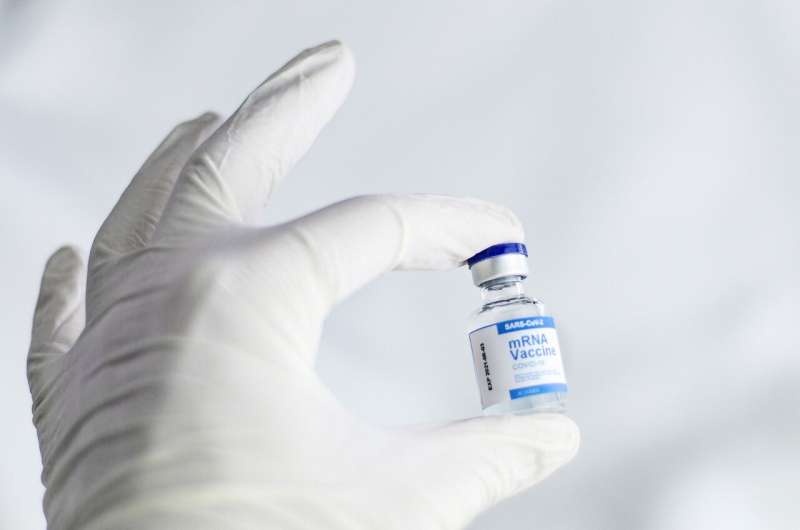Expert discusses rapid mRNA vaccine production

The COVID-19 pandemic has resulted in the successful advancement of mRNA vaccine technology. This has however left many people wondering how it is mRNA vaccines were developed so quickly. Bill Anderson, professor emeritus in chemical engineering, provides answers to this and other questions.
How do mRNA vaccines work?
mRNA vaccines provide your cells with a blueprint (mRNA) on how to construct a fragment of the virus. The "blueprint" doesn't last very long in your cells, so there is no permanent effect on them. However, your body learns to recognize and attack the viral fragment that your cells produced, so that if you are infected with the virus in the future you already have the immunological "army" primed and ready to fight it.
The fundamental concept is similar to other vaccines which use injections of fragments or inactivated viruses that can't reproduce. The difference is that the mRNA vaccines use your own cells to produce the target fragments, and importantly they can be quicker and easier to scale up and manufacture.
The mRNA vaccine itself is simply the mRNA blueprint material held within a nanoparticle package which serves two important functions. It protects the mRNA, since it is quickly and easily destroyed in the body, and it helps the mRNA get into your cells where the blueprint gets read and the viral fragments are constructed.
How were mRNA vaccines for COVID-19 developed so quickly?
The COVID-19 vaccines were produced very quickly, but only because there is a long development history behind the mRNA platform. The existence of mRNA in cells was confirmed in 1961. The successful use of a synthetic mRNA injected into an animal was reported in 1990. One of the COVID-19 developers, Moderna Therapeutics, was founded in 2010 to commercialize mRNA technologies for infectious diseases and cancer. Google Scholar lists over 250,000 research papers mentioning "mRNA vaccines" prior to 2020 when COVID-19 wasn't even known yet. So, in some ways, this vaccine has decades of development work behind it.
The mRNA technology is a type of platform, into which you can plug various "blueprints" to target different diseases. Once the virus responsible for COVID-19 was identified and genetically sequenced, companies just had to determine which part of the blueprint to use for the best effect. Once that was done and tested, manufacturing could be quickly ramped up.
What makes the technology behind mRNA vaccines so good?
The mRNA platform is great from a manufacturing point of view. It can essentially be done in a vat in a few hours with a mixture of known starting materials and some enzymes, followed by some purification and packaging (all under pharmaceutical-grade manufacturing conditions of course). Unlike many traditional vaccines, it doesn't rely on growing any cells or harvesting them for further processing and multiple purification steps. Pharmaceutical products that are manufactured using growing cells can take days or weeks to process from beginning to end, can be much harder to scale up, and have more chances of something going wrong in the manufacturing process, resulting in a batch that has to be destroyed and wasted time.
What are the benefits of mRNA vaccines?
As noted above, from a development perspective the simplicity and rapidity of the mRNA platform is a key benefit. This has allowed the world to manufacture hundreds of millions of doses in only a matter of months from a limited number of manufacturing facilities. As more production capacity is developed and brought online the response can accelerate further worldwide.
In the longer term, now that the acceptable safety and good efficacy of a vaccine from an mRNA platform has been proven in humans at a very large scale, this may open up and accelerate further opportunities for treating other diseases. Researchers have been working on other infectious diseases such as influenza, Zika and Ebola viruses, as well as some cancers, so this success may spur more investment in these efforts.





















